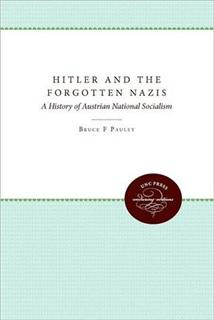Artisans of Glory
Charles Bernard
(Courtesy Bibliothque Nationale)
Charles Sorel
(Courtesy Bibliothque Nationale)
Franois Eudes de Mzerai
(Courtesy Bibliothque Nationale)
Paul Pellisson
(Courtesy Bibliothque Nationale)
Artisans of Glory
Writers and Historical Thought in Seventeenth-Century France
Orest Ranum
The University of North Carolina Press Chapel Hill
1980 The University of North Carolina Press
All rights reserved
Manufactured in the United States of America
ISBN 080781413X
Library of Congress Catalog Card Number 7919248
Library of Congress Cataloging in Publication Data
Ranum, Orest A
Artisans of glory.
Includes index.
1. FranceHistory17th centuryHistoriography.
2. HistoriansFranceBiography. I. Title.
DC120.8.R36 944.03072024 7919248
ISBN 080781413X
 For John B. Wolf
For John B. WolfContents
Preface
IN 1965 the annual meeting of the American Historical Association was held in San Francisco. Having decided to attend, I left New York by train. For my reading as I traveled across the country I took along Arthur Schlesinger, Jr.s A Thousand Days. The book and the hours of reflection upon it afforded by train travel inspired what follows.
The interest expressed in my work by colleagues and friends over the years has been very important to me. Richard Hofstadter was among the first to express curiosity about the roles writers and history played in seventeenth-century France. My colleagues in the Johns Hopkins History Seminar, David Donald, Jack P. Greene, Kenneth S. Lynn, J. G. A. Pocock, and Nancy Struever, have been particularly helpful. Felix Gilbert, Clifford Geertz, John Elliott, a fellowship at the Institute for Advanced Study at Princeton, and a leave from Hopkins were indispensable in the middle years of the project. I also benefited from the many helpful criticisms given by William F. Church, Richard Golden, Herbert Rowen, and Gabrielle Spiegel. An earlier fellowship from the John Simon Guggenheim Foundation and a leave from Columbia University permitted me to do much of the basic research. Philippe Aris, first as author of Le temps de lhistoire and then as critic and friend, has encouraged me by continually asking when the manuscript would be finished. Over the whole work looms Donald Kelleys scholarship; its importance cannot be sufficiently acknowledged by the frequent citations to his works. Paul Saenger, Mrs. Morton L. Deitch, Georges Dethan, and Le Comte dAdhmar de Panat continued, as always, to offer answers to my questions. Patricia M. Ranum became a collaborator many years ago: her understanding, common sense, and help have been unstinting all along. My editor, Lewis Bateman, expressed interest in the manuscript almost from the beginning and has been helpful to the end. Trudie Calvert remained courteous and helpful throughout what the French call the toilette du manuscrit. The give and take in the discussion over the merits and weaknesses in the rules for citation developed by The University of Chicago Press prompted compromises without changing convictions.
O.R.
1 June 1979
Baltimore
Artisans of Glory
Introduction
T HREE of the themes in this book are explored in this introduction. The first is how the familial character of monarchical history came to determine the ways in which writers could construct the history of the realm. Their choice of subjects was reduced to two: they either wrote the entire history of the three races of French kings, or else the history of the reigning king. As Capetian dynastic history became French history in the late Middle Ages, writers found it difficult to include any other subjects in that history without emphasizing personal service to the dynasty. Late-medieval French history thus became a history of services rendered to the ruling dynasty.
The second theme is how the learning of the sixteenth century enriched the primordial tendencies of writers to immortalize the dead and to perceive this as the primary function of history in the realm. The rhetorical heritage from Antiquitythe ars historicareinforced this tendency to define history as primarily an edifying dialogue with the dead.
The third theme introduces the principal subject of the book, namely, the writers themselves and the political, social, religious, and literary influences at work in the lives of gens de lettres as they attempted to assure their own self-esteem, even gloire, while writing to perpetuate the memory of French kings.
Dynastic History and Service
From the beginning French history has been family history. Through oral transmission and verse, on stone, ivory, parchment, paper, and glass, medieval aristocratic families took care to remember the names, marriage alliances, lands, and haults faits of their ancestors. The Capetians were no exception, and as their control extended over other lords and lands, their family history became French history. As in other families, their ancestors, gestes, and marriages would be recalled by descendants, vassals, and friends. Without history there could be no lignage.
Beginning in the twelfth century the fabric of aristocratic family history becomes more visible thanks to the initiative of heads of houses who either encouraged or permitted clerics to put their family histories in writing.1 Thus began the overlaying of aristocratic family histories with ecclesiastical presuppositions.2 The model for the synthesis of ecclesiastical and family history had already been provided by the works of clerics in Carolingian service during the ninth century. However, the arms, often crudely carved, on keystones in tower doorways and chapel vaults confirm that it was not the clerics who had established the function of family history in medieval society but the aristocratic families themselves. Indeed, as a man defended his house and kin, married, and had sons, he may have felt justified in using the family history as the last word in any discussion, the ultimate authority of the head of a noble household.
Within the house itself, the family history would be brought to bear in marriage negotiations to assess advantages and liabilities for the lignage. A comparative perspective over time was not only necessary but almost natural. Through the family history the dead could continue to give counsel to their descendants, perhaps satisfying what was already a personal need to be remembered as a head of the household and to be praised after death. Recollecting the gestes of the dead and educating the younger generations of the family were constituent parts of the same psycho-social mechanism.








 For John B. Wolf
For John B. Wolf